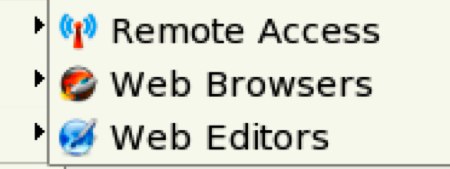Amazon Prime Ripoff – Or Not?
October 15th, 2007Editorial Note: I had originally posted this entry in the midst of feeling rather angry and foolish for having suffered a financial hit for a service I did not want. After some reflection I decided I was being too whiny and should just accept that I made a mistake. But it was too late, I had already published and the post had already gone out on the news aggregators.
So now I feel it’s more problematic to have deleted the post than it was to just leave it up in the first place. People keep asking “Where’s the Amazon Prime post?” so … here it is, in all its original fury. I guess the fact that I was even able to have the reaction I did is a sign that something could have been handled better at Amazon.
Amazon Prime Ripoff
A couple years ago Amazon introduced a club called Amazon Prime. If you pay $79/year you get free 2-day shipping. There may be other perks as well. I don’t know, because I don’t really care about the club. I don’t shop enough at Amazon to make it worth the money, no matter what the benefits.
I do shop at Amazon from time to time, and I’ve been a satisfied customer over the course of many years. So when they strongly encouraged me to “try it free for 3 months” while I was checking out, I looked at the shipping costs and decided I would be stupid to pass it up. Sure, I’ll take free shipping and try something free for three months. I’m not an idiot!
But I was an idiot. Stupid for implicitly trusting Amazon. While I’m normally pretty defensive about “deals” from other, less reputable companies, Amazon had been a faithful enough servant to me over the years, that I figured I could trust it to let me know if I was going to be charged. I must have missed some fine print. Heck it could have even been large print, but the bottom line is I got hoodwinked into paying money for a service I did not want.
Sure, I should have noticed the fees showing annually on my credit card statement. I should have noticed the free shipping on my (very) occasional purchases. But Amazon seems to always be offering something or other for free. That’s part of the reason I like doing business with them. I just figured they had popped me into another free trial – never a dull day on Amazon!
Today I discovered the unwanted payments. While Amazon has earned an extra $158 from me over the past 2 years, what they’ve lost is their place in the part of my mind where I file “companies I can essentially trust.” That’s where companies like Apple live. Now, Amazon has moved over to the part of my head where telemarketers, used car salesmen, and Columbia House Music Club lives.
The first thing I did was cancel my Amazon Prime membership (it will take 1-2 business days to go through!). Second thing I did was remove any saved credit cards I have in my account. The reason they were able to get away with this was because I had decided to trust them with my credit information.
Will I stop using Amazon? No, it’s a compelling service. But for the price of $158 I have been converted from a passionate user to a grudging user. Whenever a competitor’s service is as compelling, I will favor it over Amazon’s. Hope Amazon can use my $158 to find another trusting customer.
Business lesson? Make it really, really obvious to users when you’re going to charge them for something, and what they’re going to get in return.



